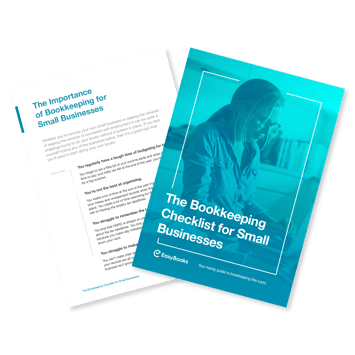No matter what size your business is, your bookkeeping practices need to be of a high standard. To achieve high standards, you need to have the basics down to a tee. You can’t expect to move mountains with your books and accounts if you and your team can’t lock down the basics, can you?
Don’t worry if you’re unsure about the types of bookkeeping. In this post, we’ve handpicked those most important you should know about and highlighted how they can help your business.
- Cash
- Accounts Receivable
- Inventory
- Accounts Payable
- Loans Payable
- Sales
- Purchases
- Payroll Expenses
- Retained Earnings
1. Cash
It doesn’t get more basic than your cash account. All of your business transactions - whether that’s incoming or outgoing - will pass through your cash account. The more active is the business, the trickier it is to keep tabs on your cash flow.
For this reason, some bookkeepers often use two records (cash receipts and cash disbursements) to track the activity more closely.
2. Accounts Receivable
If your business has accounts with customers that don’t require payment straight away, for example, a 30-day credit period, you must have an Accounts Receivable aspect to your bookkeeping. This account allows you to track the status of your payments, whether they’ve been collected or are still outstanding.
You must pay attention to this account because if some orders get lost or slip through the net, you could find yourself out of pocket and having to make up the difference for the invoices to balance correctly.
Organising this account is critical so that you can send out timely bills and provide the best customer service when taking payments.
3. Inventory
All of the products you have in stock must be accounted for in your inventory account. Regular stock takes should be carried out to make a record of every item that you have in stock. Then you can account for every penny that’s currently sat there waiting for you to sell.
Ensuring you account for everything is crucial when it comes to accurately forecast how your business is going to perform over an accounting period.
4. Accounts Payable
This is often the account that nobody likes and that’s because this is the one that allows you to see clearly what money is leaving or has left the business and when.
Like the others, you need to take good care of this account so that you don’t make any payments late, you don’t overspend and leave yourself short for the monthly outgoings and most importantly, you don’t pay anybody more than once.
Good organisation can often help with making payments early, which if you form a good reputation with the creditor, might qualify your business for a discount or special offer.

5. Loans Payable
If you’ve ever taken out any business loans, they must be managed in your loans payable account. This account will track and break down everything that you still owe and when payments must be made.
6. Sales
Track all your incoming revenue from your sales transactions in this account. Recording these sales in a regular, timely manner is vital for knowing the true position for your business.
You don’t want to leave it too long before you record sales transactions, especially if you’re getting significant volumes of orders per day because it’s easy for things to get missed. This could result in people not receiving their orders.
7. Purchases
Your purchases account is where your bookkeeper should track any materials or goods that you have bought for your business. This account works hand in hand with the above sales account. Both are crucial for calculating Cost of Goods Sold (COGS) and your business’ gross profit so they both need to be accurate.
8. Payroll Expenses
Payroll is usually the biggest cost for business owners overall. Not only is keeping this account up to date and accurate vital for paying your employees the right amount each month, but it’s also used to calculate taxes and other government reporting requirements.
Not paying the correct amount of tax can land you in deep trouble, so you need to make sure that you do everything correctly.
9. Retained Earnings
Your retained earnings accounts look after any money reinvested into the business from profits. Retained earnings appear as a running total of money that has been retained since the company started.
This account is relatively simple to look after and is of great importance to investors and shareholders who are keen to see where their money is going and the overall success of the business.
Assess Your Small Business Bookkeeping
Bookkeeping is vital to the success and growth of any business. FACT. Therefore, it’s crucial that you don’t scrimp on anything or miss out any component. Lucky for you, we’ve put together a free checklist that’ll help you align your business bookkeeping and promote efficient growth. Download it below.







